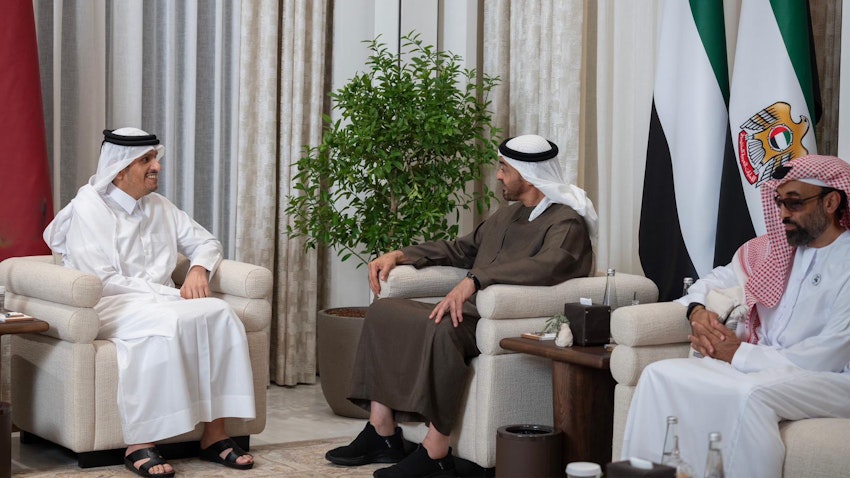In recent months, Qatar and the United Arab Emirates (UAE) have intensified diplomatic engagements, moving beyond the cautious interactions that followed the resolution of their rift in 2021. Key meetings between top leaders, including Qatar’s Emir Sheikh Tamim bin Hamad Al Thani and UAE’s President Sheikh Mohammed bin Zayed Al Nahyan, underscore a renewed focus on fostering closer ties. These talks have centred on issues of mutual interest, signalling a shared desire to bolster regional stability amid growing geopolitical challenges.
Background: From Blockade to Reconciliation
The 2021 Al-Ula summit ended the years-long blockade imposed by the Arab Quartet—comprising Bahrain, Egypt, Saudi Arabia, and the UAE—on Qatar. Since then, relations have steadily improved, with high-profile visits between officials marking a shift toward active collaboration. Sheikh Tahnoon bin Zayed Al Nahyan, UAE’s National Security Advisor, has made multiple visits to Doha, highlighting the strategic importance both nations place on mending ties.
The Role of Regional Dynamics
The engagement between Doha and Abu Dhabi comes against the backdrop of heightened tensions in the Middle East. Spillover from the Gaza war and the threat of an Iran-Israel conflict have brought violence closer to Gulf borders. Tehran’s aggressive rhetoric and warnings against supporting U.S. actions have placed Gulf Arab states in a precarious position. Balancing alliances with the U.S. while avoiding provocation from Iran remains a critical challenge.
Qatar’s Mediation Efforts and Shifting Priorities
Qatar has played a key role as a mediator in the Gaza conflict, hosting talks between Hamas and Israel. However, Doha’s involvement has drawn criticism from U.S. officials over Hamas leaders residing in Qatar. Despite challenges, Qatar’s diplomatic efforts have been instrumental in facilitating dialogue. Yet, there are signs that Doha may reduce its involvement in the Palestinian issue, focusing instead on broader regional stability and distancing itself from the political costs of mediating the Gaza conflict.
UAE’s Strategic Moves
In contrast, the UAE has adopted a more subdued role in the Gaza conflict, focusing on humanitarian aid and condemning violence. Abu Dhabi’s strategy may shift towards playing a larger role in post-conflict reconstruction, leveraging its financial resources and political influence. The UAE’s commitment to the Abraham Accords, which normalized relations with Israel, could position it as a key player in addressing the Palestinian issue. However, the challenge lies in demonstrating tangible results from this partnership amid widespread Arab support for the Palestinian cause.
Challenges from the U.S. and Iran
The potential return of Donald Trump’s administration introduces uncertainty to the region. A pro-Israel U.S. policy could embolden aggressive actions by Israel against Iran, placing Gulf states in a vulnerable position. Iranian officials have already threatened U.S. bases in the region, highlighting the risks Gulf nations face in the event of escalation. Despite reconciliation efforts like the China-brokered deal between Saudi Arabia and Iran, Gulf Arab states remain wary of Tehran’s actions.
Opportunities for Cooperation
Amid these complexities, Qatar and the UAE are exploring avenues for meaningful collaboration. Initiatives like a proposed Gulf-wide Schengen-style visa system and the ‘Development Road’ project linking Europe and the Gulf demonstrate a shared commitment to regional integration. These efforts reflect a broader goal of enhancing economic and political stability in the region.
Looking Ahead
The evolving relationship between Qatar and the UAE underscores the shifting dynamics of Gulf diplomacy. Both nations recognize the importance of unity in navigating challenges posed by external powers and regional conflicts. While uncertainties remain, the focus on fostering cooperation and addressing shared concerns marks a positive step toward a more stable Middle East. How these dynamics unfold in the coming years will significantly shape the future of Gulf politics and security.

